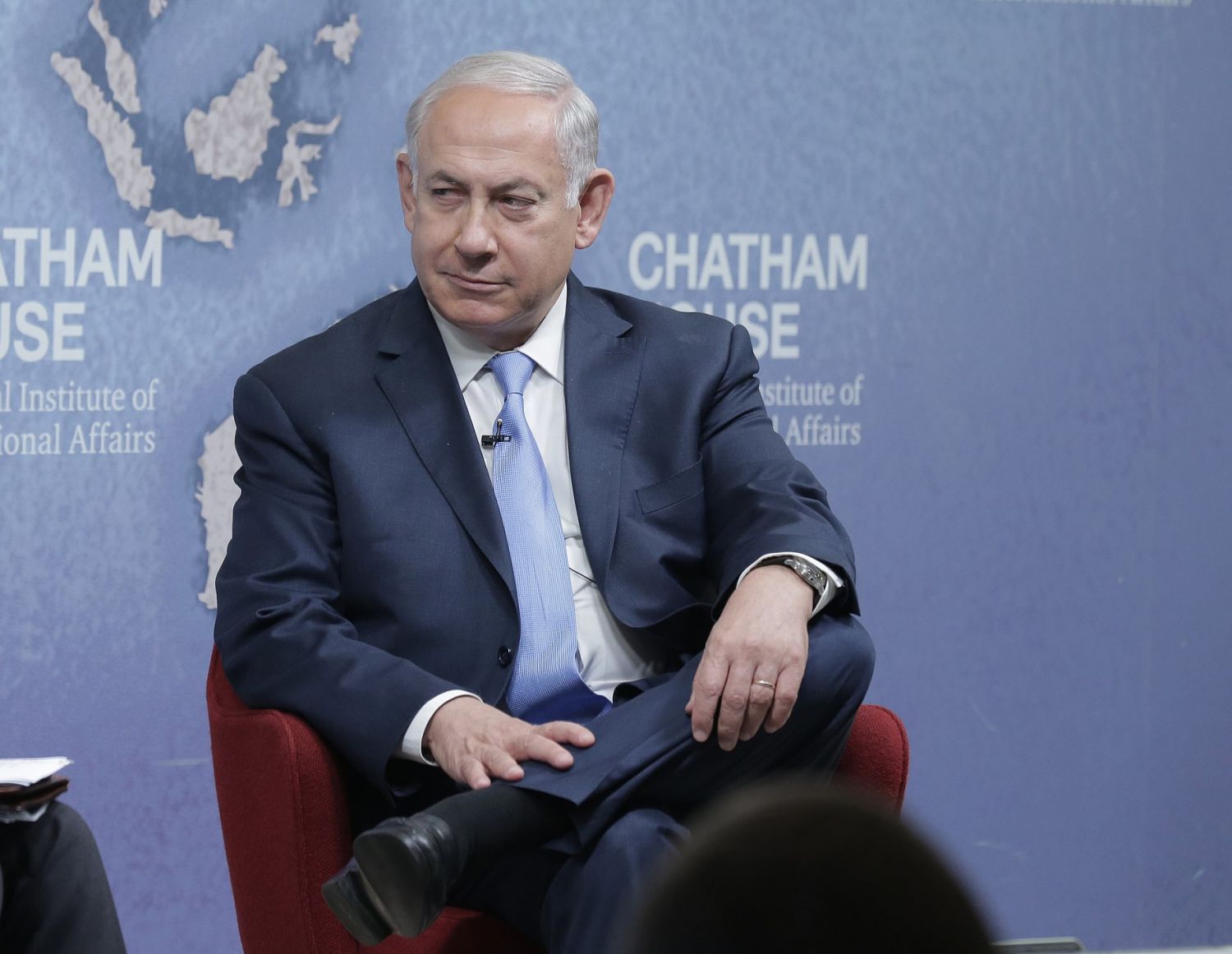As countries around the world are waging war on the coronavirus, Israel’s prime minister has managed to leverage the crisis to gain more power than ever.
It is too early to give a final or even mid-term grades to leaders and countries currently waging war against the coronavirus. Still, if there is one political leader who was able to leverage this crisis to his own personal advantage—it’s Israeli prime minister Benjamin Netanyahu.
The coronavirus presents a formidable threat to the health of millions of people and all economies around the world. But in some countries, it also presents a threat to democratic institutions, as powerful and opportunistic leaders can use this moment to consolidate power and encroach on democracy.
Israel, usually a strong and vibrant democracy, may be a case study for that.
Netanyahu, who is entering his 12th consecutive year as prime minister of Israel, found himself in the worst position he has ever been last month, and the closest he has been in a decade to losing power and (thanks to the several ongoing corruption charges against him) his personal freedom.
On March 5, as Israel reported the final results of its third election in less than a year, it was clear that Netanyahu’s main rival, Benny Gantz from the Blue-White party, had a narrow path to achieve a majority in the Knesset, the Israeli Parliament.
Three months earlier, Israel’s attorney general indicted Netanyahu on criminal charges of bribery, fraud, and breach of trust. Gantz was close to forming a majority in the Knesset to pass bills that would force Netanyahu out of office and form a new government.
But it was exactly at this point that the coronavirus pandemic hit, and Netanyahu seized the opportunity. Appearing almost every night during prime time on Israel’s major three TV networks, Netanyahu called for a unity government to address the threat of the virus.
Meanwhile, Amir Ohana, the minister of justice Netanyahu appointed last summer, declared that he is freezing the courts over the coronavirus emergency, one week before Netanyahu’s trial was scheduled to start. Ohana, a close confidant of Netanyahu, was part of a group of politicians close to Netanyahu that has waged a growing campaign against the Israeli Supreme Court and the prosecution, accusing them of being part of a “deep state” that is biased against the right.
The instruction to freeze the courts was given four hours after a press conference in which Netanyahu and the director-general of the Health Ministry presented a new slate of emergency measures to curb the spread of the novel coronavirus. Its result: the opening of Netanyahu’s trial was postponed to May 24.
Days later, Gantz announced that he is willing to join a unity government headed by Netanyahu, his bitter rival. Gantz and most of his party members, who vowed time and again not to join a government headed by a politician with three criminal indictments, and who ran for election three times in the past year on the explicit promise not to do so, decided that Covid-19 is a good enough reason to legitimize Netanyahu’s leadership.
And sure enough, yesterday (Monday) Netanyahu and Gantz signed the final deal to form the new unity government. According to the agreement between the two leaders—Netanyahu, who is facing trial, will have the power to veto the appointments of the next attorney general and the head of the prosecution.
“The database that was originally intended to be used in the war against terrorism is now used for other purposes.”
Freezing the courts, delaying his trial, and obtaining influence on the prosecution were not the only controversial measures Netanyahu was able to pass during the crisis. Israel’s secret service and its opaque military agencies quickly got involved in the efforts to fight the epidemic, gaining more power in the process.
Israel’s foreign intelligence agency, the Mossad, was charged with the mission of obtaining medical equipment that was in short supply. The head of the Mossad is one of Netanyahu’s closest confidants, and the organization is naturally exempted from any public disclosure of its finances and processes.
The dangers of using more military and intelligence organizations in civic life became more evident when Netanyahu announced that the Ministry of Health will turn over the location data of citizens infected by the virus to the Shin-Bet, Israel’s main domestic security service.
It was the first time that the government acknowledged that the Shin-Bet keeps records of all the locations and interactions of Israeli mobile phone users. Ronen Bergman, an Israeli investigative journalist and staff writer for the New York Times, revealed that the Shin Bet operates what is internally called “The Tool,” a secret database where information about every citizen is constantly collected. Emergency regulations, announced by Netanyahu, granted the Shin Bet permission to use it to track coronavirus patients.
The database that was originally intended to be used in the war against terrorism is now used for other purposes. It is now being used to fight the coronavirus, but using it for civilian purposes may open the door for other uses that will pose a real threat to civil liberties.
Many people in the business sector and beyond are worried that the measures taken in the fight against the Covid-19 will turn out to be as harmful or much worse than the health crisis.
But when we discuss the collateral damage from this crisis, we should think not only about the threat of a long recession or economic depression, but also the threat to something that is even dearer to us: Democratic values, institutions, and processes.
Netanyahu photo by Chatham House [CC BY 2.0]
ProMarket is dedicated to discussing how competition tends to be subverted by special interests. The posts represent the opinions of their writers, not necessarily those of the University of Chicago, the Booth School of Business, or its faculty. For more information, please visit ProMarket Blog Policy.






